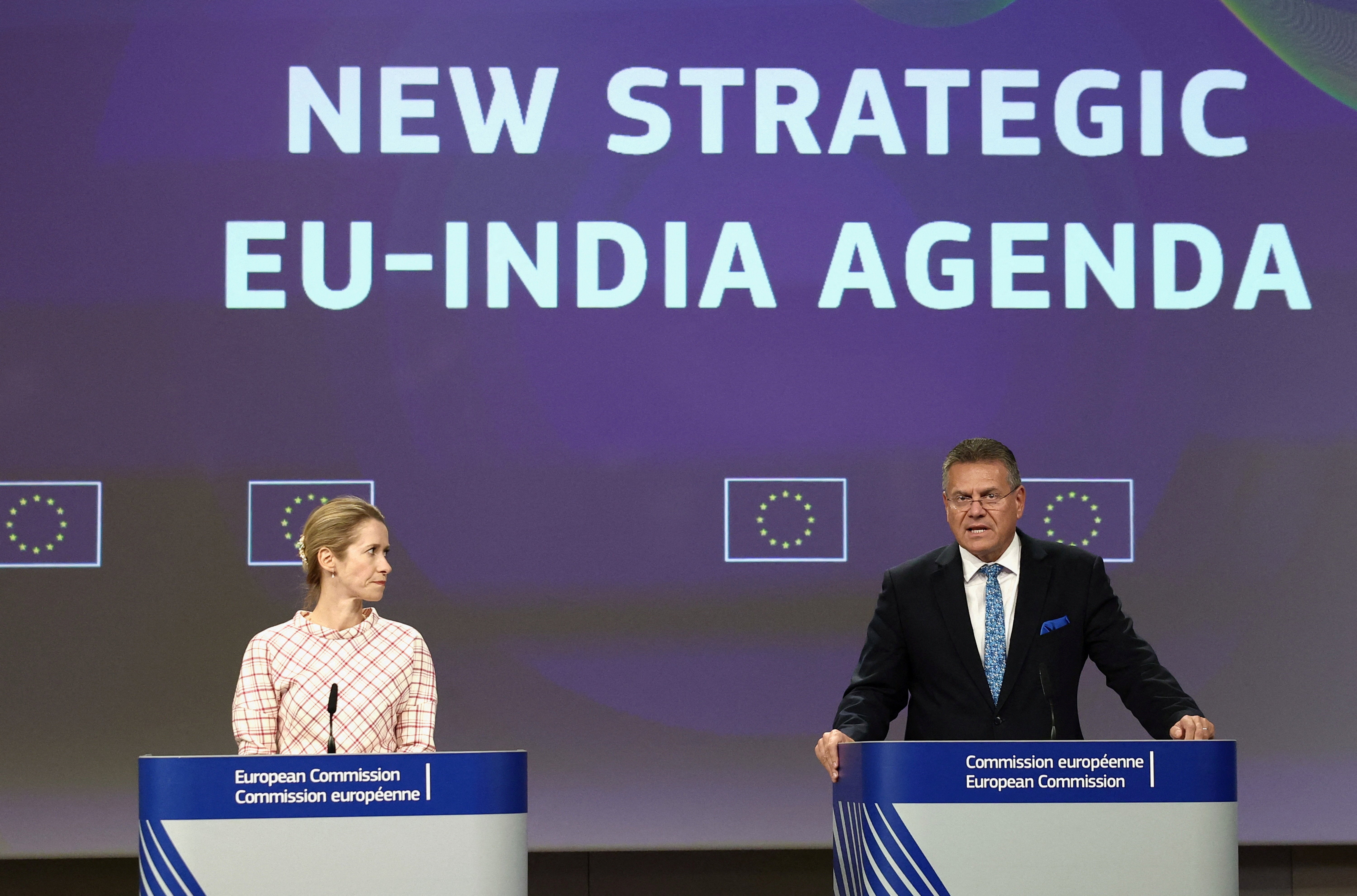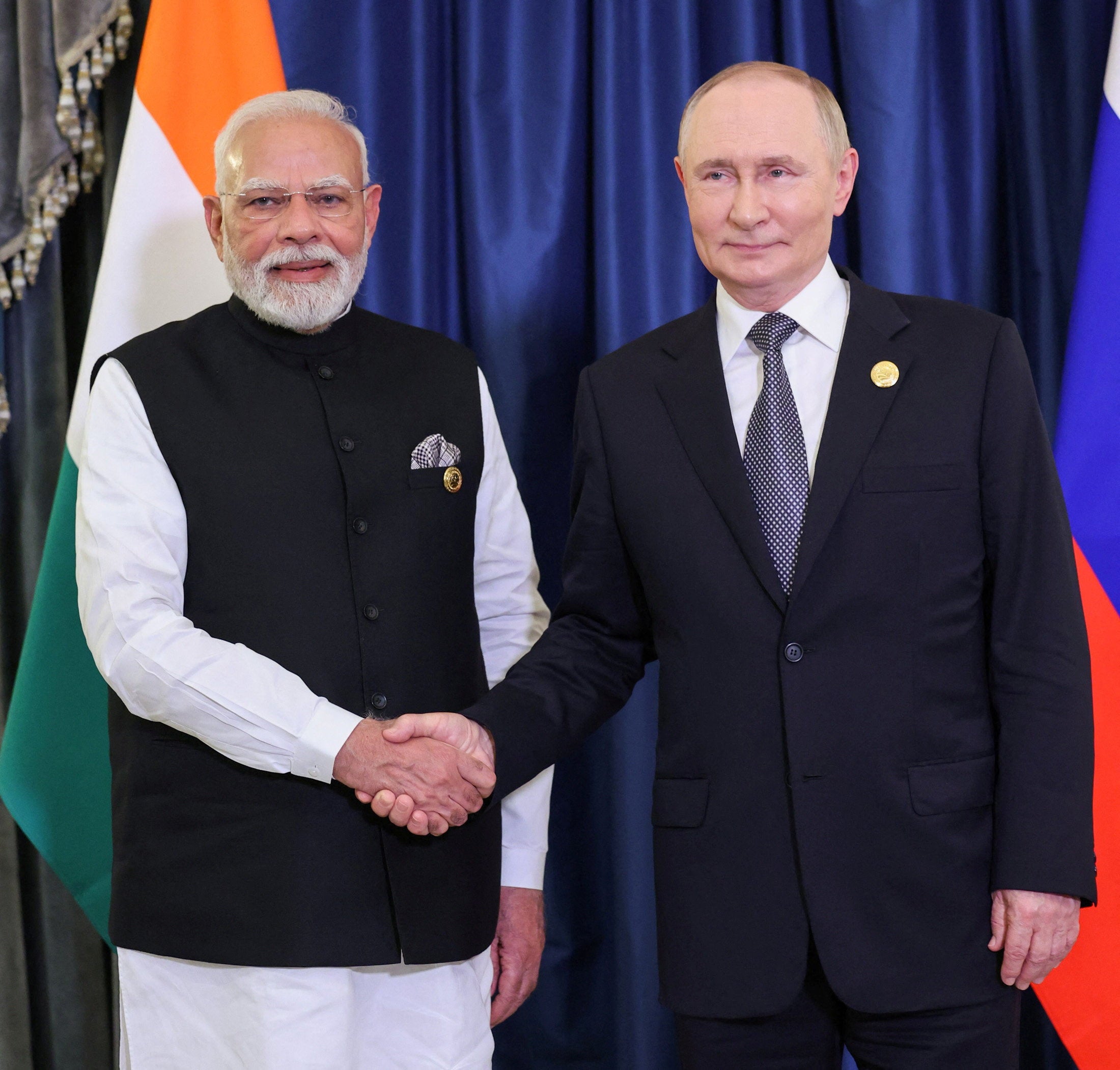The EU said India’s growing relations with Russia were a major obstacle to finalising a long-awaited free trade agreement even as Brussels unveiled a new “strategic agenda” for deepening cooperation with New Delhi in defence, technology and global security.
European Commission president Ursula von der Leyen said the initiative marked a new phase in relations with the South Asian country. “Now is the time to double down on partnerships rooted in shared interests and guided by common values. With our new EU-India strategy, we are taking our relationship to the next level,” she said.
The document sets out proposals ranging from enhanced maritime and cyber security cooperation to supply chain resilience and new ventures in digital innovation.
It also outlines plans for an EU-India Business Forum, expanded academic and labour mobility, and trilateral partnerships with countries in Africa and the Middle East.
Central to the new agenda is the aim of concluding a free trade agreement by the end of this year.
Ms von der Leyen described the proposed deal as “the largest of its kind anywhere in the world”, stressing that Europe was already India’s biggest trading partner.

Trade commissioner Maros Sefcovic said the agreement could unlock “vast potential” by tackling tariff and non-tariff barriers.
Brussels also flagged significant obstacles, however. EU foreign policy chief Kaja Kallas warned that India’s purchase of Russian oil and its participation in Russian-led military exercises “stand in the way of closer ties”.
“Participating in military exercises, purchases of oil – all these are obstacles to our cooperation when it comes to deepening the ties. The question is whether we leave this void to be filled by somebody else or try to fill it ourselves,” she said.

She was referring to the participation of Indian soldiers in Zapad 2025, a Russian military exercise held earlier this month near Nato’s eastern borders.
India sharply increased its purchase of discounted Russian oil after the Western countries sanctioned Moscow over its invasion of Ukraine in 2022.
Despite these tensions, Ms Kallas said the EU did not expect India to “completely decouple” from Russia, given their long-standing ties, but insisted disagreements would need to be addressed in negotiations.
“If everything is not agreed then nothing is agreed in the end,” she said.
Indian prime minister Narendra Modi welcomed the new framework, describing it as a “shared commitment, shared goal, and shared responsibility”.
In a post on X, Mr Modi thanked Ms von der Leyen for her birthday greetings, saying India was “ready to take the India-EU relationship to the next level” and reiterated his government’s call for a “peaceful resolution of the Ukraine conflict”.
The prime minister’s office added that both leaders agreed to continue working for “mutual prosperity” and to strengthen the partnership in promoting a rules-based international order.
Mr Modi also renewed his invitation for the next EU-India summit to be held in India next year.
The strategic communication emphasises collaboration on global issues like climate change, green hydrogen and decarbonisation as well as expanding cooperation through the India-Middle East-Europe Economic Corridor and the EU’s Global Gateway infrastructure initiative.
It also envisages a Security of Information Agreement to enable classified data sharing and a potential EU-India Startup Partnership.
“India is one of the most important players in the world today and a natural partner for the European Union,” Ms Kallas said.
“There are many areas where our interests, strengths and political will align. Boosting our collaboration will benefit the security and prosperity of citizens and businesses on both sides. Our negotiations will address these challenges.”
The agenda must be endorsed by all 27 EU member states before its formal adoption, expected at the next summit in early 2026.
